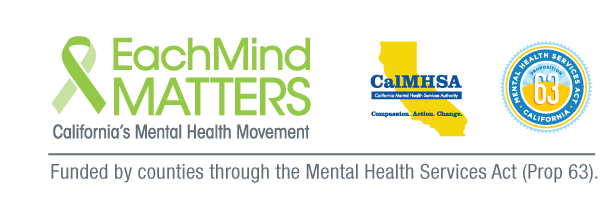Together we can inspire a new generation to have critical conversations about topics that impact social change in our schools and communities. The Directing Change Program and Film Contest engages students and young people throughout California to learn about the topics of suicide prevention and mental health in an innovative way: a film contest.
Evaluation of the Directing Change Program has shown the program to be effective in impacting youth because it follows a field-tested model that includes requiring youth to critically analyze key components of suicide prevention and mental health, applying this knowledge to formulate and create key messages for their peers in their films, and encouraging youth to speak out on these issues, opening them up to have conversations about these important health topics. A 2016 evaluation by NORC at the University of Chicago found that program participants, compared with other youth, were significantly more likely to:
- Know where to find assistance if a friend was having thoughts about suicide
- Believe that people who kill or attempt to kill themselves usually show some warning signs
- Believe that even people who seem successful can be hurting on the inside and think about suicide
- Be less worried to bring up the topic of suicide with someone they were concerned about because that person could become upset with them
- Be willing to have conversations with friends or family members about the importance of mental health and supporting those with mental health challenges
- Be willing to raise awareness about mental health and suicide prevention by joining a club or attending an event about these topics
View the 2017 Directing Change Evaluation Report, prepared by NORC at the University of Chicago and the Directing Change 2019 Outcome Statement to learn about the impact Directing Change is having in communities.
View: Outcome Statement (pdf)
View film: Directing Change
Give back by using these films to advocate, change minds and possibly save a life. For the past seven years, over 10,000 young people (ages 14 to 25) have applied lessons learned about the warning signs for suicide, mental health and how to help themselves or a friend by creating 60-second films about these topics; Over 350 schools and organizations have integrated the program into the classroom and have been offered trainings, prevention programs and educational resources; more than 600 community members including members of the news media and entertainment industry have learned about appropriate messaging on these topics by judging films; and films are used to support awareness efforts through local screenings and online where films have been viewed over 400,000 times; Thousands of conversations about these topics have been started in schools, classrooms, among friends and in communities as a starting point to overcome stigma and promote help-seeking.




